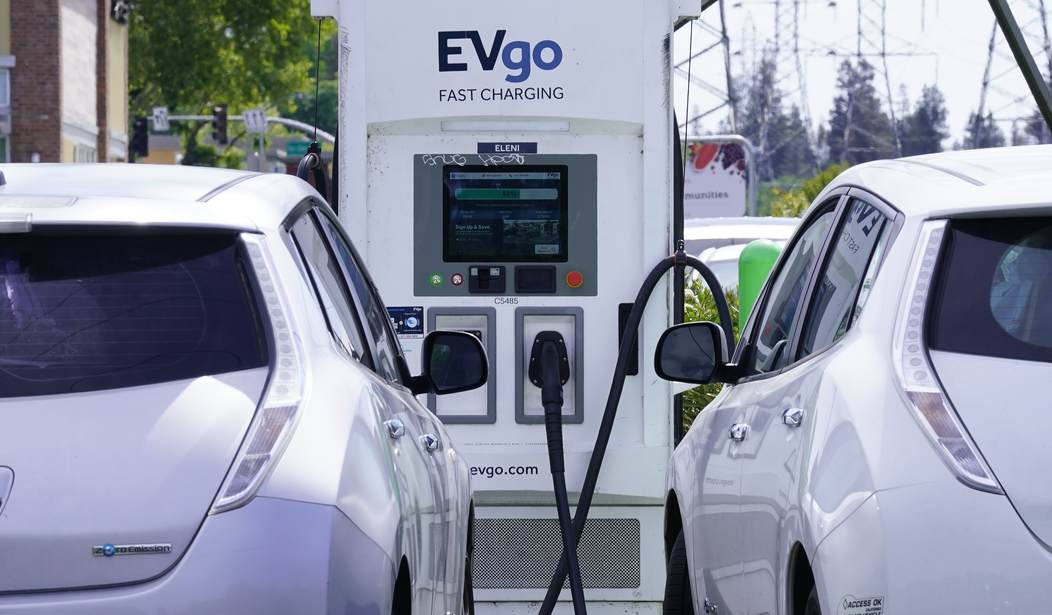President Biden wants at least 50 percent of new vehicle sales by 2030 to be electric, but doing so requires significant investment in the infrastructure required to make that happen. To this end, Congress in 2021 spent $7.5 billion to invest in EV charging stations across the country through the Infrastructure Investment and Jobs Act.
There’s just one problem, however. After two years, Biden's goal of "building a national network of 500,000 electric vehicle chargers along America’s highways and in our communities," has gone nowhere, as not a single charger has been installed.
States and the charger industry blame the delays mostly on the labyrinth of new contracting and performance requirements they have to navigate to receive federal funds. While federal officials have authorized more than $2 billion of the funds to be sent to states, fewer than half of states have even started to take bids from contractors to build the chargers — let alone begin construction.
Consumer demand for electric vehicles is rising in the United States, necessitating six times as many chargers on its roads by the end of the decade, according to federal estimates. But not a single charger funded by the bipartisan infrastructure law has come online and odds are they will not be able to start powering Americans’ vehicles until at least 2024.
Getting chargers up and running across the country is essential to reaching President Joe Biden’s goal of having half the vehicles sold in the United States be electric by the end of the decade — a key cog of his climate agenda. Americans consistently say the lack of charging infrastructure is one of the top reasons they won’t buy an electric car. (Politico)
The National Renewable Energy Laboratory estimates the U.S. will need about 1.2 million public chargers by 2030 to meet demand. According to the Energy Department, there are only about 180,000 chargers today.
Recommended
An unnamed Biden official said the slow rollout is not surprising given the administration's desire to build a “convenient, affordable, reliable, made-in-America equitable network.”
“Anybody can throw a charger in the ground — that’s not that hard, it doesn’t take that long,” the official told Politico. “Building a network is different.”
GOP senators reacted to the news, blasting Biden's green agenda.
$7.5 billion and 0 electric vehicle chargers built.
— Senator Cynthia Lummis (@SenLummis) December 6, 2023
President Biden's Green New Deal is a total scam at the expense of hardworking Wyoming taxpayers. https://t.co/Cn7AATnDdr
American taxpayer dollars were wasted on Biden’s green climate scheme.https://t.co/JXbvPHuXfK
— Senator Eric Schmitt (@SenEricSchmitt) December 5, 2023
Biden's EV fantasy is a road to nowhere and a waste of taxpayer dollars.
— Joni Ernst (@joniernst) December 5, 2023
Despite the billions for his green agenda, he doesn't even have a charger to show for it. https://t.co/6cBSIsFp9W

























Join the conversation as a VIP Member